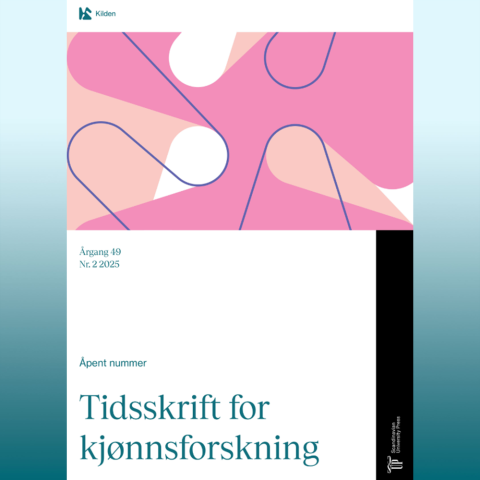The Journal of Gender Research: Open issue

This year's second issue contains three peer-reviewed articles that in various ways deal with education, career progression and gender. The first explores how a head of department contributes to professorship promotion among associate professors, how power relations in academia are unconsciously reproduced and reinforced, how gender as a dimension can actually have an impact on the assessments the head of department makes. The second article deals with stress and school pressure among children and youth in middle school, arguing for temporal changes in gender differences, while also highlighting the importance of a structural perspective. The last article discuss whether feminism may have originated in Mexico, whether in Sor Juana Inés de la Cruz's texts from the 17th century we actually encounter proto-feminist arguments for women’s right to education, similar to those that emerge in Europe a century later.
DOI: 10.18261/issn.1891-1781
Abstracts
Professor potential? A close study of how a head of department “works” to contribute to professorship promotion among associate professors at the University of Agder, Norway
By May-Linda Magnussen, Tale Steen-Johnsen, Irene Trysnes, and Hege Wallevik
In this article, we do a close study of an interview sequence with a head of department at the University of Agder, Norway. We explore how (s)he becomes attentive to and assesses associate professors (s)he believes have potential of being promoted to professor, and supports their professor qualification. This “work” is brought into dialogue with other data from the research (s)he participates in, and into dialogue with the research of others. We do this to substantiate that the mentioned work is shaped by the interviewed head of department’s own standpoint, but also by institutional conditions – including gendered understandings and practices. We have used institutional ethnography in our data development and analysis.
Keywords: professor promotion, head of department, university, gender, institutional ethnography
Temporal changes in gender differences: Stress and school pressure in the transition from childhood to adolescence
By Mathilde Bjørnset
Youth research has shown gender differences in stress and school pressure, but we know less about gender differences among children. This article seeks to fill this knowledge gap by investigating whether gender differences in stress and school pressure increase with age and over time. The material for the analyses is Ungdata junior, a survey of more than 150,000 participants from grades 5-7 (10-12 years) from 2019-2023. To investigate a maturation hypothesis about a different maturation rate between girls and boys, it is examined whether there is a change in gender differences with the children’s age. To investigate a cultural dimension of gender differences, changes over time are examined. The analyses show a gender difference in stress and school pressure that has not previously been empirically documented in this age group. Furthermore, the analyses show that gender differences appear to increase both with age and over time. This indicates that composite explanations of gender differences in stress and school pressure are most appropriate. The article seeks to put the gender differences in a structural perspective, rather than individualizing girls’ stress and school pressure.
Keywords: stress, school pressure, gender differences, children, youth
Did Feminism Originate in Mexico? On Sor Juana’s Socratic Defense of Women’s Right to Philosophize
By Fredrik Nilsen
In the article, I present the Mexican philosopher and writer Sor Juana Inés de la Cruz, and discuss whether her argument for women’s right to philosophize and to education means that she should be included in the history of feminism and not just, as is usual, to characterize her as a “proto-feminist.” My thesis is that it is difficult to include her in the history of feminism, for two reasons: She does not operate with a set of rights that should accrue to women in the same way as men, as the first wave of feminists did, and, secondly, the thinkers in the various waves of feminism did not build on her thinking, as we see, for example, in the way that the feminists in the second, third and fourth waves built on the first wave. The characterization of Sor Juana as a “proto-feminist” is thus legitimate, but her thinking and courage can and should serve as motivation and inspiration for today’s feminists.
Keywords: Sor Juana, feminism, proto-feminism, women’s right to education, Mexican philosophy
Read the full issue at Scandinavian University Press (scup.com)